Minsk’s muddled media clampdown could jeopardize warming of relations with the West.
Andrei Yahorau: Belarus remains a black hole on the map of the EU’s neighbors
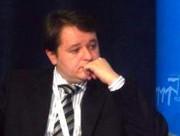
Lithuania during its presidency in the EU Council would like to achieve to improve the relationships between Belarus and the EU, but has too limited tools for it.
Such an opinion expressed Andrei Yahorau, the director of Centre for European Transformation (CET) and a political scientist in a conversation with the EuroBelarus Information Service.
He noted that the improvement of relationships with eastern neighboring countries is one of the priorities of the Lithuanian presidency in the EU Council, which started on July 1 and will last till the end of the year. And in this context special importance is given to the Eastern Partnership Summit, which is to be held this autumn in Vilnius and there will inevitably appear Belarus question on the agenda.
"Even if it isn’t the central question it will attract quite considerable attention. This nearest Lithuanian neighbor remains a black hole on the map of the EU’s neighboring countries. Without having normal contractual relationships with the EU Belarus has limited participation in the European neighborhood policy and Eastern partnership and lags behind of all partner countries in the degree of approaching the EU. Belarusan drop-out from the general trend remains one of the main issues which concern the effectiveness of the EU’s eastern policy. One can speak about an undoubted success of Eastern partnership only if Belarus moves off dead center," thinks the expert.
"In respect of political effectiveness, the invitation of Vladimir Makei, the Minister for Foreign Affairs, to Vilnius summit as well as his removal from the list of those who can’t enter the EU is the most reasonable step," considers Andrei Yahorau: "But the removal of the Minister for Foreign Affairs from the list has just provoked the tide of negative reaction; not only in Belarus but also in the EU from the side of those forces which adhere to the rhetorical guideline of “non-collaboration”. The same will happen with his invitation for the summit."
European toolbox
What is more important and politically significant is the question of general approach of the EU towards Belarus. The expert reminded that in today’s situation the EU uses a defined pack of foreign-policy tools for influencing upon Belarus.
The first tool is the restrictive measures towards officials who are responsible for human rights violations as well as towards a number of businessmen and enterprises which are supposedly connected with the support of Lukashenka’s regime. The second tool is a package of measures which are aimed at the support of the civil society and political opposition in Belarus. And the third one is technical collaboration of the EU with the Belarusan state, including the so-called sector dialogs, which are carried on by the European Commission together with the appropriate Belarusan ministries in the fields of energy, economy, regional development, etc.
"During two and a half years that passed since dramatic events of December 2010, it is but obvious that these tools didn’t help to change the situation in Belarus for the better," Andrei Yahorau stated.
EU actions will depend on the behavior of the official Minsk
Still, for now there is no acceptable tool package in work with Belarus.
"In this relation Vilnius Summit becomes dependent on the situation development within Belarus," believes CET director: "If considerable change for the better in the situation with human rights in Belarus takes place, then EU could turn back to the tools package that was employed during the “thaw” in 2008-2010. However, if such thaw doesn’t take place, then the already existing instruments will remain, despite their doubtful effectiveness."
The expert also makes his suppositions concerning Lithuanian presidency in the EU Council. He believes that no considerable decisions towards Belarus from the EU side will take place. “The result that can be achieved under the current circumstances is securing Belarus’ symbolic presence in the EaP area, demonstration of its involvedness into the European policy together with the launch of the diplomatic communication at Foreign Minister level,” Andrei Yahorau stated.
Others
-
In Belarus, a rising fear: Will we be the next Ukraine?
The relationship between Russia and Belarus has never been an easy one. The two former Soviet republics have spent the last two decades on a roller coaster ride — sometimes allies, sometimes adversaries in heated public rows.
-
The EU’s Benign Neglect of Eastern Europe
Between November 6 and December 11, 2015, Carnegie Europe continued its Capitals Series. In this second phase, the focus was on the EU’s Eastern neighbors, which the bloc has so often zigzagged over in trying to establish a coherent policy toward them collectively or bilaterally.
-
New ENP and Civil Society’s Role in Focus of the 7th EaP CSF Annual Assembly (Photo)
The 7th Annual Assembly of the Eastern Partnership Civil Society Forum was held in Kyiv on 19-21 November attracting around 300 participants, observers and guests who attended more than 20 sessions and a Networking Fair in the framework of the Assembly.
-
Is social economy a phenomenon for Belarus?
The conference “Social economy: how to be successful despite the crisis” launched in Minsk on October 22.

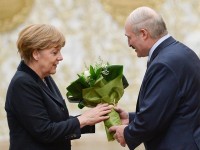
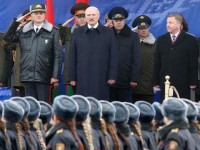
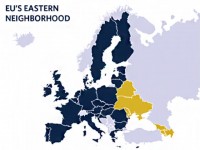
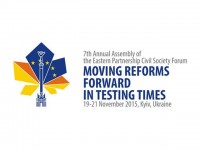
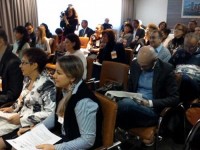


Comments
Andrei Yahorau — Al Jazeera: “Lukashenko is irresponsible”
He said Belarus would likely face economic tightening not only as a result of the coronavirus pandemic but also a Russian trade oil crisis that worsened this past winter.